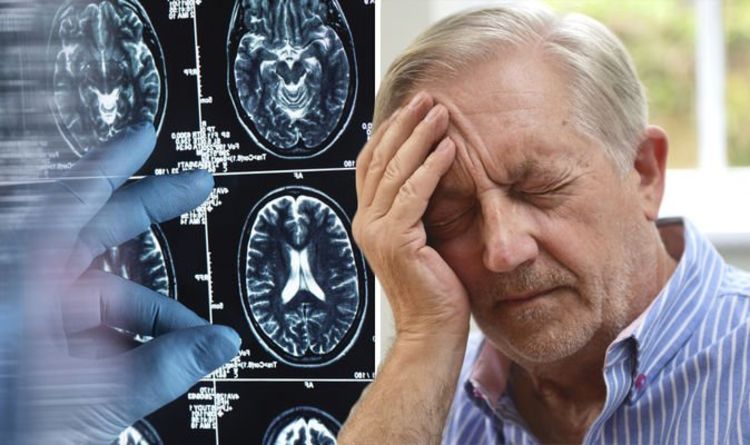
The chronic and short-term complications of coronavirus have remained in sharp focus throughout the pandemic. But as research advances, it’s becoming increasingly apparent that certain patients find their brains continue to bear out the scars of their COVID-19 battles. Data released last year raised the alarm over the cases of three young COVID-19 patients who developed Parkinson’s within weeks of contracting the virus. An expert has now warned that many more could be at the perils of the neurodegenerative condition in the coming years.
Kevin Barnham from Florey Institute of Neuroscience and Mental Health warned that a wave of neurological illness is set to follow the pandemic.
“Parkinson’s disease is a complex illness, but one of the causes is inflammation, and the virus helps to drive that inflammation,” explained Miss Barnham.
“Once the inflammation gets into the brain, it starts a cascade of events which can ultimately lead to Parkinson’s disease.
“Evidence is already suggesting the triggers for Parkinson’s disease are there with this virus. I believe the risk is real.”
READ MORE: Parkinson’s: Exactly how much water you should drink to avoid Parkinson’s symptoms
“We can’t put a number on it, but with 30 million people worldwide affected by this virus, even a small shift in the risk of getting Parkinson’s would lead to many more people getting diagnosed.
“We know COVID-19 has short-term effects, but we are releasing more about the potential long-term effects.”
Data published in November of 2020 were the first to raise the alarm over potential neurological implications of infection with COVID-19.
The data drew on three separate case reports on relatively young COVID-19 patients who developed Parkinson’s within two to five weeks of contracting the disease.
DON’T MISS:
The lead author of the article, Patrik Brundin, warned at the time: “If this link is real, we might be in for an epidemic of Parkinson’s disease in the future.”
The three patients, aged 35, 45 and 58-years-old respectively, all incurred a severe respiratory infection from Covid, which led to their hospitalisation.
Brain imaging later revealed classic signs of Parkinson’s disease in all three patients.
“These cases of acute Parkinson’s in patients with COVID-19 are truly remarkable,” noted Mr Brundin.
“They occurred in relatively young people – much younger than the average age of developing Parkinson’s – and none had a family history of early signs of Parkinson’s prodrome. That is quite a stunning observation.
“Parkinson’s is normally a very slowly developing disease, but in these cases, something happened quickly.”
The doctor suggested the virus might make patients susceptible to Parkinson’s by plaguing them with neurological symptoms after infection.
These typically include brain fog and depressions, which are consistent with damage to the brain and could lead to Parkinson’s.
Parkinson’s disease is characterised by a gradual shortfall of dopamine in the brain, the hormone responsible for movement in the body.
This causes problems with body movement, including involuntary tremors and rigidity, both of which can severely compromise quality of life.
In light of the alarming findings, researchers have suggested patients undergo early tests to pick up symptoms.
Parkinson’s patients can experience loss of smell up to a decade before the onset of symptoms, so a smell-test screening could open up the window opportunity for early medical intervention, explained doctor Lyndsea Collins-Praino, Head of cognition ageing laboratory at the University of Adelaide.
Doctor Collins-Praino, added: “The earlier we can detect [the damage] the better our chances of really effective and meaningful therapeutics for individuals.”
Published at Tue, 07 Dec 2021 12:10:00 +0000
Expert’s stark warning over ‘wave of neurological illness’ to follow Covid infections













